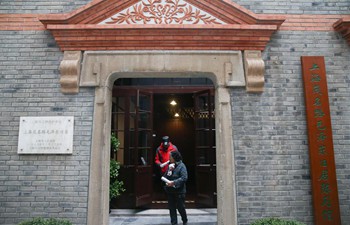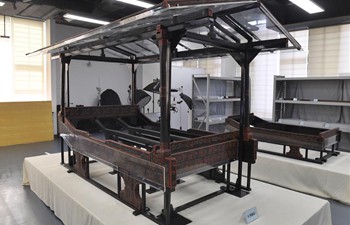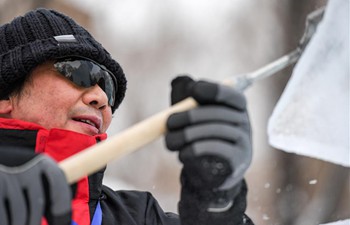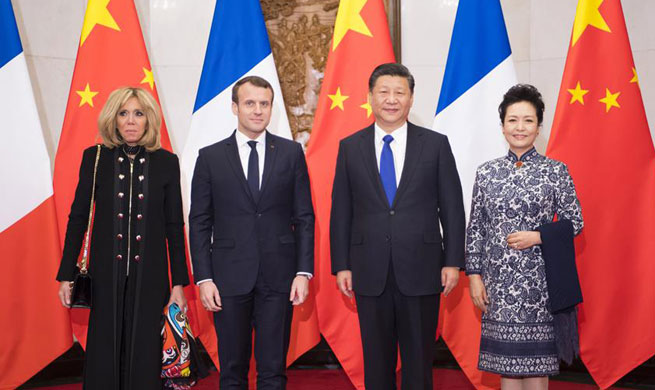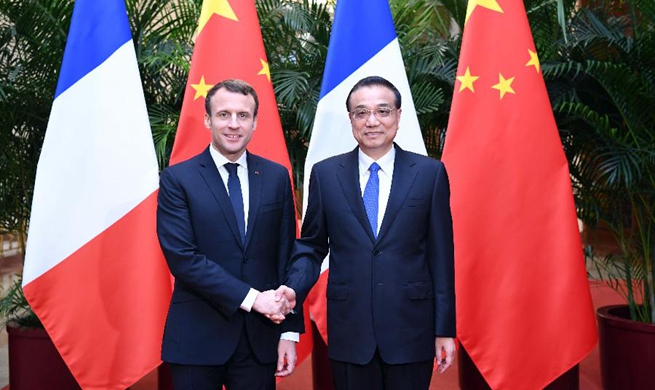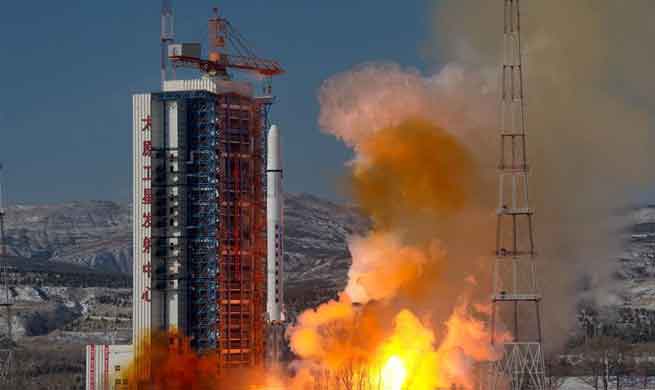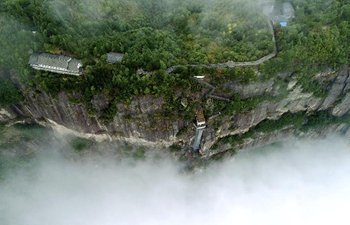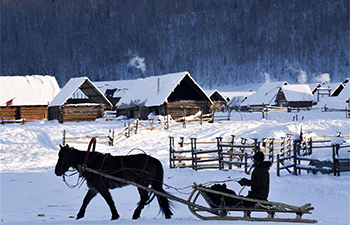BEIJING, Jan. 9 (Xinhua) -- The top anti-graft agency of the Communist Party of China (CPC), the CPC Central Commission for Discipline Inspection (CCDI), will hold its second plenary session from Jan. 11-13 to outline the Party's anti-corruption work in 2018.
The country maintained a tough stance against corruption in 2017, and its anti-graft campaign has built into a crushing tide and is being consolidated and developed.
Five centrally-administered officials have been put under investigation on suspicion of "severe disciplinary violations" since the 19th CPC National Congress held in October 2017. During the congress, Xi Jinping said in a report that corruption was the "greatest threat our Party faces," urging all CPC members to have the resolve and tenacity to persevere in the "never-ending" fight against corruption.
The downfall of the five high-ranking officials was a potent sign that the Party will build on the momentum and keep up pressure on corruption in the new year.
The anti-graft watchdog has ousted corrupt officials all the way from low-level "flies" to high-ranking "tigers" in the past year.
According to the CPC Central Commission for Discipline Inspection (CCDI), at least 18 centrally-administered officials were investigated and nearly 40 were given Party disciplinary punishments in 2017.
Meanwhile, local anti-graft bodies have been detecting low-level bureaucrats suspected of embezzling public funds, using public funds for banquets, accepting bribes and holding lavish banquets, among other violations.
Besides the crackdown on "tigers" and "flies," the anti-graft watchdog has been busy hunting corrupt officials hiding out abroad.
By the end of December, 3,866 fugitives had found themselves hunted down and captured from more than 90 countries, with more than 9.6 billion yuan (1.48 billion U.S. dollars) recovered by police, according to the CCDI.
China also targeted corruption in its national poverty relief scheme. Nearly 450 people were investigated and punished for fraudulent claims or misappropriation of funds and 730 million yuan of misused funds recouped in an inspection of 28 provinces last year, said the Ministry of Finance and the State Council Leading Group Office of Poverty Alleviation and Development.
A public opinion poll showed that about 75 percent of Chinese people were satisfied with the anti-corruption efforts in 2012. The figure rose to almost 94 percent by 2017.
The graft crackdown is a long-lasting fight. Although remarkable results have been achieved, the fight is far from over.
Supervisory system reform is among the latest efforts to rein in corruption. China has started setting up supervisory commissions at the national, provincial, prefectural, and county levels, to ensure that "supervision covers everyone working in the public sector who exercises public power."
The commissions will supervise the execution of duty and ethics by public functionaries, investigate illegal activities such as graft, misuse of power, neglect of duty and wasting public funds, issue administrative penalties, and transfer potential criminal cases to the procuratorates, according to a decision adopted by the country's top legislature in early November.
A draft supervision law was submitted to the bi-monthly legislative session of the Standing Committee of the National People's Congress for second reading in December. It made clear regulations on forming supervisory organs, responsibilities and powers, investigation methods to ensure such organs act in accordance with the law.






